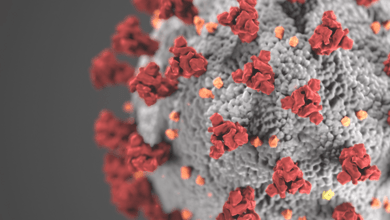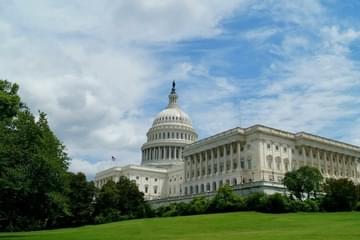
Can Cannabis Help Cure COVID-19?
Published on 6/9/20
As the country coped with Stay at Home, Safer at Home and Shelter in Place orders last month, a headline in the May 21, 2019, issue of the New York Post caught the eye of marijuana proponents and weed lovers across the continent: "Scientists believe cannabis could help prevent and treat coronavirus." It seemed logical. The extraordinary plant has already proven effective at battling a variety of other ailments and syndromes, so why not COVID-19? The endocannabinoid system has been researched and studied extensively but it remains a largely mysterious entity with much yet to be discovered and understood. The receptors, neurons, transmitters, lipids and cells harbor traits and tendencies that act in different ways depending on what the body receives and how it receives it. Surely there is a possibility that cannabis can at the very least be beneficial in some manner to those battling the novel virus.
Research Restrictions
Sadly, even though states across the country continue to ease restrictions on marijuana use, it is still deemed illegal in the eyes of the federal government. Policies and regulations meant to curb research into any potential benefits provided by cannabis use are strictly enforced and the lack of research means that policymakers and the health care industry have little to go on when it comes to understanding and making decisions about cannabinoids and cannabis use. Federal and state regulations that are often at odds severely limit how researchers are able to conduct studies of marijuana.

The root of the problem is the federal government's insistence on listing marijuana as a Schedule I drug. This means that cannabis is considered to have no currently accepted medical use and a high potential for abuse. It also means that weed is lumped in with far more powerful drugs like LSD and heroin. Despite continual congressional challenges crafted to remove marijuana from the Schedule I list, no legislation has passed the Senate. The lucky public institutions that are able to conduct research with cannabis are severely limited by key restrictions. The Center for Medicinal Cannabis Research at the University of California San Diego's School of Medicine, for example, can only work with cannabis grown by the one federally licensed dispensary, which is located at the University of Mississippi. This sole source directive prohibits the study of the myriad varieties of weed sold legally at dispensaries around the country where medical and/or recreational cannabis sales are illegal.
International Research on Cannabis and COVID-19
The study referred to in the New York Post article was the result of a partnership between researchers at the University of Lethbridge in Canada, Pathway RX and Swysh, Inc. Pathway is a research company dedicated to developing custom cannabis therapies to treat specific diseases and Swysh is a cannabinoid-based research company. The study - which has yet to be peer-reviewed - used artificial human models of intestinal, oral and airway tissues. The resulting data suggest that Cannabis sativa extracts with high levels of CBD alter protein levels and gene expression in gateway tissues of the COVID-19 virus and may work to inhibit its access to cells.
The CEO of Pathway Rx, Dr. Igor Kovalchuk - who has a Health Canada License for Cannabis Research - said, "Our initial findings warrant further investigation but it's possible that medical cannabis products could become a safe adjunct therapy for the treatment of COVID-19." Pathway aims to continue its research with the assistance of funds from the Canadian government's $1.1 billion earmarked to support scientific initiatives to address COVID-19.

Plans to study cannabis efficacy with COVID-19 are underway elsewhere in Canada and also in Israel. Canadian-based biopharmaceutical company Tetra Bio-Pharma has a history of cannabinoid-derived drug discovery and development and is looking to secure funding to examine the active molecule in their synthetic cannabinoid drug PPP003. The idea is to focus on the type 2 cannabinoid receptor (CB2R) and the possibility that PPP003 can slow the progression of symptoms of acute lung injury and strengthen the immune systems of COVID-19 patients.
Meanwhile, researchers at the Israel Institute of Technology are engaged in two studies that examine the potential for a cannabis terpene formulation that can be inhaled to combat COVID-19. The research is looking at the effect of cannabis molecules on the immune system and also investigating the ACE2 receptor and how the cannabis terpene formulation might keep the virus from entering human cells. InnoCan Pharma and Tel Aviv University have also started work on developing a cell therapy treatment that uses exomes loaded with CBD to assist patients with lung infections and COVID-19. InnoCan Pharma is an Israeli pharmaceutical company committed to cannabis therapies.
Is Cannabis the Cure to COVID-19?

Research on cannabis and the potential for use against COVID-19 is just getting off the ground and it will take time to get substantial and confirmed results. Based on what studies have been done and what we already know about how cannabinoids can modulate and influence the immune system, there is hope that cannabis can continue to provide researchers, pharmacists and physicians with new information about its medicinal properties and potential.



















